Móatún 7 — connecting the links between the music and the label that has embraced artists who have brought us sublime listening experiences in electronic music.
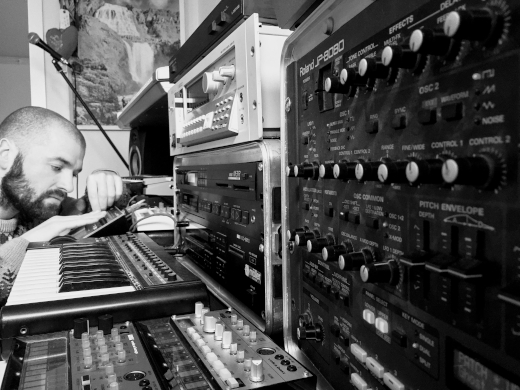
Móatún 7 — Home of electronic music
Árni Grétar, under the moniker Futuregrapher, is an extremely active and unparalleled Icelandic electronic musician who also runs the 2019-founded record label Móatún 7. On the Móatún 7 label are prominent names in electronic music, such as The Future Sound of London, Plaid, Metamatics, and B12, to mention just a few. Futuregrapher’s worldwide work with artists like Russian producer illocanblo, Japanese artist Hidekazu Imashige, and American multi-artist Eric Taylor, among many others, has resulted in the release of countless singles and remixes, cementing his position as a major player in the publishing of electronic music around the world. The Móatún 7 label and Futuregrapher’s Bandcamp page seems endlessly scrollable due to the many artists with whom he collaborates to create ambient, techno, electronica, acid, IDM, experimental electronic music.
Prides itself on offering a diverse selection of electronic music, in 2019, Futuregrapher joined forces with Lee Norris of Metamatics (Neo Ouija, Metamatics, Nacht Plank, Norken) and launched the record label Intellitronic Bubble which sets the standard for the finest of electro and techno music. It comes as no surprise that, in addition, in 2011, Futuregrapher cofounded Möller Records alongside Skurken, Bistro Boy, and Steve Sampling to help Icelandic electronic artists create and share music. Uniquely, because its label owners are themselves artists who help other artists get their music exposed to the world, Möller Records has become the flagship for Icelandic electronic music.
Futuregrapher is widely recognized for his wide-ranging and multifaceted approaches to electronic music. From techno to ambient you will hear evidence of the many types of gear he possesses. For instance, as his favorites, he uses the Reason and Ableton Live for his computer and for hardware it’s the Akai Samplers S3200, S5000, Yamaha DX9, TX81Z, Korg M1, Triton, the Roland JV1080 and XV5050. Of course, there is more gear utilized in his impressive recording and production studio.
I have been intrigued for quite some time about Futuregrapher’s mental processes and the compelling quality electronic music emanating from his successful and “in demand” Móatún 7 label. After all, it is this label where I discovered Lovetrip, silentwave, Parallel Worlds and Inkipak. Fans of Futuregrapher and the Móatún 7 label will find this interview engaging and informative, as it connects the links between the music and the label that has embraced artists who have brought us sublime listening experiences in electronic music.
Anne Jackson / Igloo :: What pursuits do you find enjoyable that are not related to music but ultimately contribute to the overall creative process that goes into your music as Futuregrapher?
Árni Grétar :: I love photography. Street photography and nature photography. I have been taking photos since 2003 (20 years now) and I have folders labeled from that year. That goes hand in hand with my music making. I see things I like and connect with it through music from myself and others. I have a photographic memory and photographs help me connect to how I felt at a time or connect to past times. Like music does.
The images you use for the Móatún 7 album covers are truly distinctive. Are they accompanied by any stories? Can you provide an example of an album with a story that corresponds to the photograph on the album cover? What do they mean?
This answer goes together with my last response. I see moments in time, and I try to catch the moment. The feel of it. It could be just a simple photograph of a stone or an empty house. The colors speak to me. I am fascinated with the colors of nature. And the little details that sometimes goes missing—like the little grass by a big rock or painting on a house that is fading. We are all connected—not just people—but the things in nature and the stuff we put into it. When I listen to demos from my friends, I see images I had been capturing during the week and most likely that will end up as the covers. Or I take a trip outside the city and take thousands of photos and share the best moments with my musical friends who tell me what photo they think will be fitting to their album.
I have listened to your recent Ýsa í raspi album and especially love the track Emotix. It has the style of techno with an entrancing groove. On a general note, which artist in the techno scene has influenced your creations of techno music?
Thank you for that. Emotix is lovely. Sample in the beginning is from a guy who was called “Gísli á Uppsölum”. He was a lone ranger living on a farm far from the world and lived a very recluse and private life. My inspiration comes from many artists. I could name a few that have shaped me as an artist: Biogen, Envoy, Dan Curtin, A Guy Called Gerald, Kenny Larkin, B12, Future Sound of London, Björk, LFO and many more. My friend Lee Norris is also a huge influence on me. His style goes in all directions and that’s what I love (Metamatics, Nacht Plank, Norken).
Ambient music? In ambient music is mostly FAX related stuff. I am a huge fan of Tetsu Inoue and all his collaborations, Pete Namlook (of course), Mixmaster Morris and Jonah Sharp (to name a few). I also am a great admirer of ishq, Biosphere and Harold Budd. I have been lucky to play at the same festival as Biosphere two times and Mixmaster Morris many times at the Extreme Chill Festival in Iceland. It was great meeting some of my heroes from my youth.
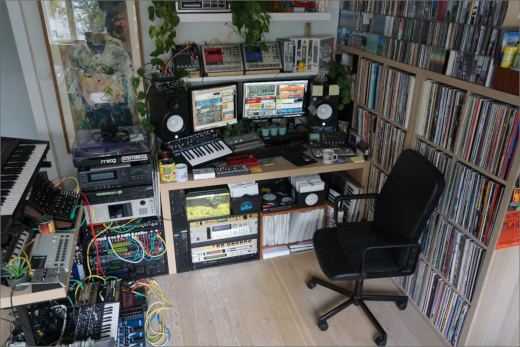
I have observed that your Móatún 7 label releases music on a constant flow. I also know you are a proud father of two young boys and a preschool teacher. How do you balance being a father, preschool teacher, record producer, and musician? I am certain that you also maintain regular contact with other musicians. Can you tell us about these experiences?
Being a father is number 1 for me. Spending time with my boys is the best. They are 1 week with me and the other week with their mom so when I am alone, I work like an animal on the music and on the labels. And sometimes I do that also in the morning and when they fall asleep. I hardly watch TV and when I do, it’s almost always just some horror movies, sci-fi or watching Star Trek (I’m a Trekkie). So, my alone time is spent on music. I dedicate my life to that when I’m alone. I also work in the pre-school 4 days a week. And that helps me get grounded. Get connected to the world and see the big picture from the kids. I love it. It gives me energy which I use in the music. It seems like hard work doing all of this, but I have managed to work it out because I quit drinking and I focus solely on positive things. I try not to waste my energy on stuff that don’t matter to me. My boys, my music, my labels, and my pre-school matter to me.
Who are the most influential or inspiring artists and/or producers that have been instrumental in the success of your career as an artist and label owner that you network with?
Biogen was instrumental in my success from day 1 when I started my Futuregrapher alias. I lived outside the city in a small fishing town called Tálknafjörður and when I moved to the city in 2006, I knew few people. No one in the scene. But I met Biogen and gave him a demo CD and he contacted me again and told me he wanted to have me play at his event Weirdcore which he co-hosted with Ísvöld. They two are like my parents in the Icelandic scene. And through them I met Yagya, Ruxpin, Skurken and many others. Biogen, who was my friend and mentor, sadly passed away in 2011. Me and Skurken started the label Möller Records shortly after. From there I started to see how a label could be run. When I started my own label Móatún 7 I was a lone ranger. But through help from many people and all the great followers this has been possible. And again, would like to thank my friendship with Lee Norris because he helped me with a lot of things when we started Intellitronic Bubble.
Can you give us a glimpse into any upcoming projects or goals projected in the upcoming year or years as Futuregrapher?
All my dreams have come true. When I was young, I wanted to make a record, tour with my music, and play abroad and be successful in making music. I am living a dream. My goals today are just to continue living my dream and try to be the best version of myself. Be humble and be thankful. Music will continue to be written as long as I am alive.
The Móatún 7 Record label?
Móatún 7 is named after my family house. I was raised in Tálknafjörður, like I mentioned above, and when I was 14, I started a little music shop in my parents’ house. I ordered stuff from Þruman, a record store in Reykjavík and sold at home. I also made CD demos of my own music which I gave to my friends. Some of those tracks can be found on my 2003 album (Dj Dorrit) and some can be found on Rebirth RB-338 on my Bandcamp. I had minimal gear back in the day but knew the program Rebirth inside and out. I could write any kind of music with just that software. The label gets the name from that but mainly I just started it because I wanted to continue to release music by myself and by my mates. Most people who release music on my labels are people I am connected to, and I consider friends. I am thankful for that. To me, to be able to hold on to a physical copy of your own music is better than anything. So, I try to make Vinyl, CD and Tapes (all formats) and the digital will be forever (or at least until somebody shuts down the internet).
Many thanks for this insightful and engaging interview. It has been a wonderful experience getting to know you better and delving deeper into the music of Futuregrapher and the Móatún 7 Record label.
Find Móatún 7 at moatun7.bandcamp.com — their latest compilation MOACD十八 is out now.






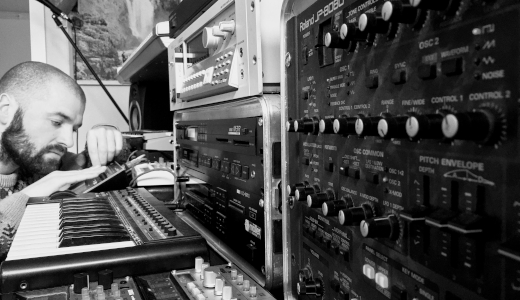



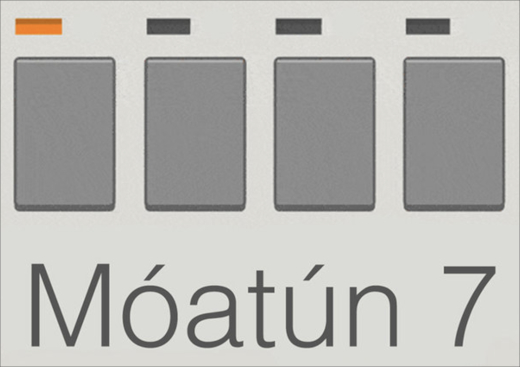


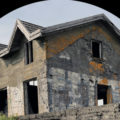
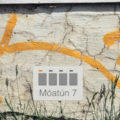
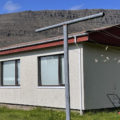

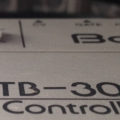
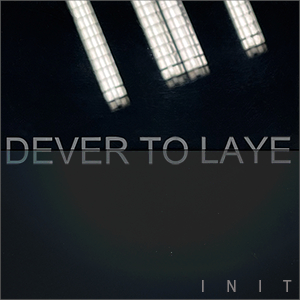
![Extrawelt :: AE-13 (Adepta Editions) — [concise]](https://igloomag.com/wp/wp-content/uploads/2025/04/extrawelt-ae-13_v_feat-75x75.jpg)
![Beyond the Black Hole :: Protonic Flux EP (Nebleena) — [concise]](https://igloomag.com/wp/wp-content/uploads/2025/04/beyond-the-black-hole-protonic-flux_feat-75x75.jpg)
![H. Ruine, Mikhail Kireev :: Imagined / Awakenings (Mestnost) — [concise]](https://igloomag.com/wp/wp-content/uploads/2025/04/h-ruine-mikhail-kireev-imagined-awakenings_feat2-75x75.jpg)


![Squaric :: 808 [Remixes] (Diffuse Reality) — [concise]](https://igloomag.com/wp/wp-content/uploads/2025/04/squaric-808-remixes_feat-75x75.jpg)


